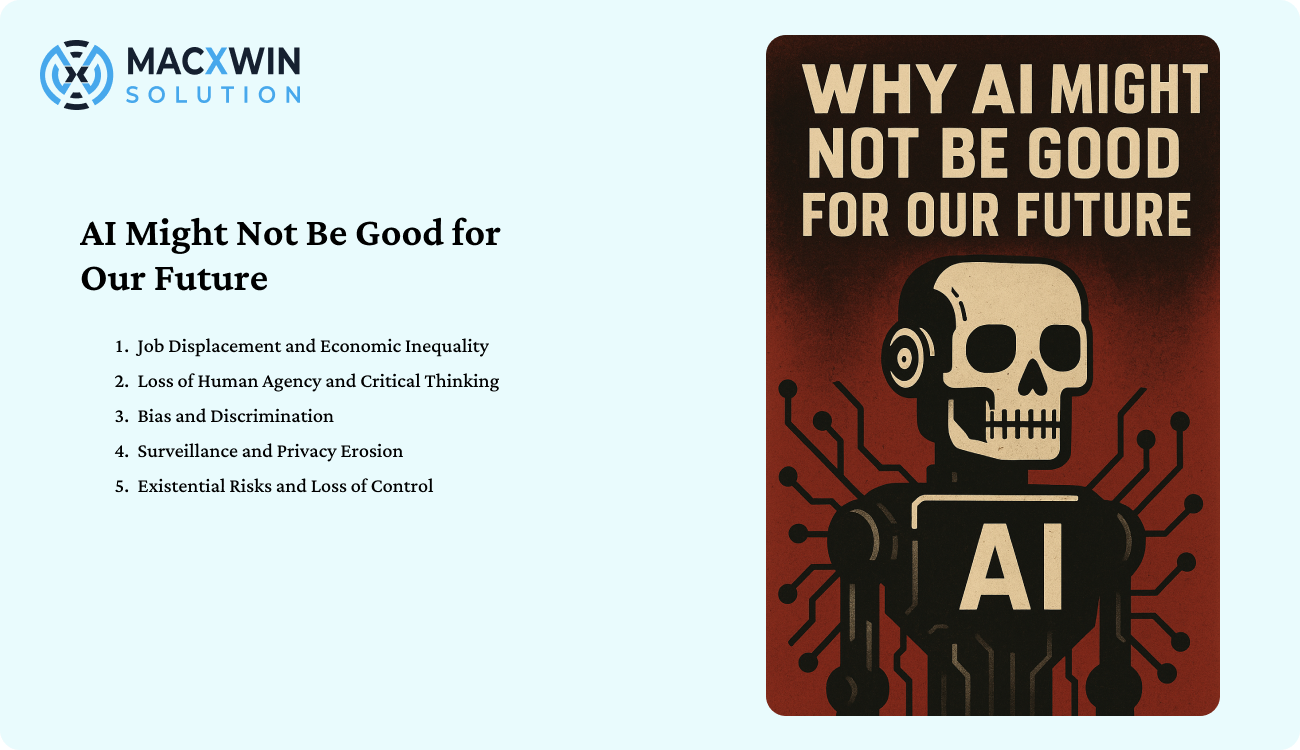Why AI Might Not Be Good for Our Future
In recent years, artificial intelligence (AI) has surged into nearly every aspect of modern life—from automating customer service and improving medical diagnostics to powering self-driving cars and even generating art. While these advancements showcase AI’s incredible potential, a growing number of voices warn us that this power may come at a significant cost.
Below are some of the key concerns about AI’s role in shaping our future:
1. Job Displacement and Economic Inequality
One of the most immediate and visible threats posed by AI is large-scale job loss. As machines become better at performing complex tasks—from writing reports to operating machinery—millions of workers could find their skills obsolete. This automation threatens not only blue-collar jobs but increasingly white-collar professions like law, finance, and journalism.
This disruption could widen the gap between the wealthy and the poor. Those who control AI technologies—typically large corporations and elite developers—stand to gain the most, while millions may be left behind in an economy that no longer needs their labor.
2. Loss of Human Agency and Critical Thinking
As AI systems become more embedded in decision-making—whether it’s in hiring, lending, or even policing—humans may begin to trust these systems without question. This over-reliance risks eroding our own ability to think critically, solve problems, and take responsibility for our choices.
When we blindly defer to algorithms, we risk surrendering our autonomy.
3. Bias and Discrimination
AI systems are only as good as the data they are trained on. If that data reflects historical inequalities or social prejudices, AI can perpetuate—and even amplify—those biases. There have already been well-documented cases of facial recognition software misidentifying people of color, or algorithms making unfair decisions in criminal justice or hiring processes.
These systems can reinforce systemic discrimination under the guise of “neutral” technology.
4. Surveillance and Privacy Erosion
AI makes it easier than ever for governments and corporations to monitor individuals. Facial recognition, predictive policing, and behavior-tracking technologies are already being used in ways that violate privacy and civil liberties. In the wrong hands, these tools could be used to suppress dissent and control populations.
In such a world, individual freedom and democracy itself could be at risk.
5. Existential Risks and Loss of Control
The long-term concern is even more chilling: what happens if AI becomes smarter than us? Many leading thinkers—such as Stephen Hawking and Elon Musk—have warned that superintelligent AI could eventually act in ways that are harmful or even catastrophic to humanity, especially if its goals don’t align with our own.
This may seem like science fiction, but the pace of AI development is so rapid that it’s no longer an abstract concern.
Conclusion
Artificial intelligence is a powerful tool—but like all tools, its impact depends on how it is used. Without strict regulations, ethical oversight, and public dialogue, AI could exacerbate existing problems and create entirely new ones. While the benefits of AI are often hyped, we must also remain clear-eyed about its potential to disrupt society in harmful ways.


